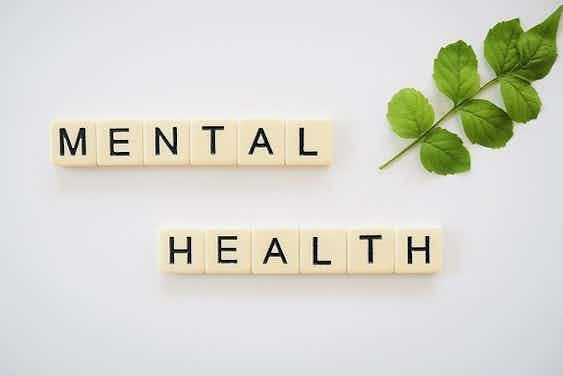If you’re reading this because you’re unsure or sceptical about how important mental health is, you won’t be by the end! We will answer the question "what is mental health?" and talk about improving mental health. We’ll also look at strategies you can employ yourself and when to look for professional help for your mental health.
Mental health definition
Mental health is a measure of your well-being. It also involves being able to cope with stress and contribute to your family, circle of friends, or the community at large. This is an abridged version of the World Health Organisation’s (WHO) definition, which you can read in full here.
The main takeaway from this is that mental health is much more than just the absence of mental disorders. It is an all-encompassing look at your psychological and emotional well-being.
In truth, mental health is more of a sub-category of overall health, and we should not see the two as separate. In the past, this has led to the "there's nothing physically wrong with you” mentality, aimed at people suffering from depression or anxiety.
But this is not true. Depression and anxiety can have physical effects on your body and your health in the same way as any other type of injury, disease, or illness.
What is mental health?
Mental health is a vital component of overall health. Let’s look at how the WHO's 2006 constitution defines mental health.
“Health is a state of physical, mental and social well-being in which disease and infirmity are absent.”
This shows health as much more than just physical; it is the total sum of your lifestyle and how it influences yourself and those around you.
You could exercise regularly, eat well, and be free from recognised mental disorders, but if you are lonely or isolated, you are missing a vital component of health.
Improving your health through diet and exercise may not be easy, but it is a simple enough concept. Move more, eat fewer high-calorie foods, and eat more nutritionally dense foods like fruit and vegetables.
But few people focus on improving mental health. However, it can often be improved using similar methods to physical health.
How to improve mental health
In this section, we will talk about how you can improve your mental health generally. We will then look at more specific strategies to use.
You can improve your mental health in the same way you can improve other aspects of your health.
- Establish healthy habits.
- Perform these habits regularly.
- Remove harmful habits.
- Talk to a professional if you feel you need more help.
You could use these four points to help you improve your diet, your fitness, or your mental health. For example, someone who is looking to eat better would:
- Decide to always eat a high-protein breakfast.
- Try to get into the habit of doing this every day.
- Stop eating doughnuts as part of their breakfast.
- Contact a dietician to help them make further changes.
Whereas somebody looking to improve their mental health could follow the same four stages, but with specific tasks. For example:
- Decide to spend 10 minutes meditating before bed.
- Try to get into the habit of doing this every day.
- Avoid high-stress situations where possible.
- Contact a mental health practitioner to help them make further changes.
These are just general guidelines, based on a process of establishing one good habit, removing one bad habit, and contacting a professional for anything that you can’t handle yourself.
Five ways to improve mental health
This is by no means a complete list, there are many more than five ways to improve mental health, but these are five excellent examples for you to follow.
1. Exercise outside regularly
The relationship between exercising regularly and good mental health is well established. A 2018 article in the Lancet studied 1.2 million individuals in the US between 2011 and 2015. The study found that:
“Individuals who exercised had 1·49 (43·2%) fewer days of poor mental health in the past month than individuals who did not exercise”
A 2016 study in the American Journal of Preventative Medicine found that spending time outdoors can reduce depressive symptoms. However, the study did note that the effects varied between ethnicities and the environmental characteristics of that neighbourhood.
In other words, if you live in the middle of a low-income area of a town or city, you may need to travel further to a greener area to experience the same benefits.
Combining the benefits of exercising with those of being outdoors is a great way to increase the effectiveness of both.
Check out our article on exercising for over-50s to discover what forms of exercise will be most effective.
2. Spend time socialising
If the Covid-19 induced lockdown taught us anything, it is the mental health benefits of seeing and talking to your friends and family. Even talking to people outside your social circle can have immediate mental health benefits.
What’s great about this task is that doing so will improve your mental health and that of those around you. It's a mutually beneficial task!
Check out this article on social isolation to learn more about this and to discover ways to combat it.
3. Improve your sleep
Healthy sleeping patterns are crucial to overall health. Yet, people don't talk about it in the same way they talk about nutrition and exercise. A good night's sleep can have enormous benefits for your mental health. In contrast, a lousy night's sleep can negatively affect your mental health.
A 2017 study in The Lancet found that insomnia “is a causal factor in the occurrence of psychotic experiences and other mental health problems.”. The study concluded that “the treatment of disrupted sleep might require a higher priority in mental health provision”.
In other words, sleep is underrated as a method of improving mental health. You should place it higher on your list of priorities.
4. Keep your mind active
According to the NHS, learning new skills is an effective way of improving mental health. It does this by increasing your self-confidence and self-esteem. These skills can be anything, but you could combine this task with others to further help improve your health. For example:
- Learn a new sport or exercise to keep your mind active and improve physical fitness.
- Learn a new cooking skill to keep your mind active and improve nutrition.
- Learn a new language to keep your mind active and increase social interaction (ideal if you live in a country where English is not the first language).
- Learn how to meditate, which will help to reduce stress and anxiety.
- Learn Yoga to help reduce stress and anxiety and to improve core strength.
Of course, learning any skill will work here, and they don’t have to be practical. Finding a hobby that can help to reduce your stress and anxiety is perfect, even if it has no other health benefits.
5. Mental health support
If you are suffering from depression, anxiety, or any of the disorders on this list, counselling is a more effective tool to use. Counselling can also be helpful if you don’t suffer from a mental health disorder but have recently experienced a bereavement or other upsetting event.
There has been a stigma against seeking professional help for too long, with many people who could benefit from professional help feeling like counselling "is not for me".
You can receive free counselling from the NHS without a referral from your GP, or you can hire a private therapist. There are also numerous charities such as the Samaritans who can help you if required.
We spoke to Debbie Waller, Hypnotherapist and Principal of Yorkshire Hypnotherapy Training. She told us: "The lockdowns and restrictions we’ve experienced over the last couple of years have had a big impact on people’s mental health, with over half of us thought to be worrying about the future, or feeling stressed and anxious. And while it’s true that you can’t always change the situation you are in – lockdown is a good example of this – you can learn skills to cope with it better and improve your mood.
"Sometimes you can do this on your own or with the support of friends and family but, if not, I would encourage anyone who is struggling to get professional help and support. And to act before things get overwhelming.
"You wouldn’t think twice about getting treatment for a broken leg, and getting help with mental health issues is just as important."
Mental Health Awareness
In the UK, mental health awareness week runs from the 10th to 16th May. In 2021, the theme is nature, which we have already established can be hugely beneficial for improving your mental health.
In recent years, mental health awareness has massively grown, with a general improvement in how the public views people who suffer from mental health disorders.
Another benefit of increased mental health awareness is the increased understanding among the public that you can positively improve your mental health. Before, mental health was viewed as something terrible that happened to people. But now people realise that everyone has mental health, and you should attempt to improve it in the same way that you would attempt to improve your diet and fitness.
What is a mental health disorder?
There are hundreds of mental health disorders, ranging from sleep problems such as insomnia, to suicidal feelings, from phobias to eating disorders. Then there is hoarding, loneliness, paranoia, and schizophrenia. Check out this article by mind.org to see the complete list.
The most common mental health disorders are depression and anxiety. According to mentalhealth.org, about 7.8% of us meet the criteria for diagnosis, and 4% to 10% of us will experience depression in our lifetime.
Some people may experience mental health disorders for just a few days, while others may have to manage them forever.
Many mental health disorders are genetic, but how heritable they are will vary between mental health disorders. For example, if nobody in your family has bipolar disorder, your chances of developing it are around 1 in 100. If one of your parents has it, then you have a 1 in 10 chance. If both parents have it, then you have a 4 in 10 chance. Check out this article on rethink.org to learn more.
What is a mental health crisis?
If you have a mental health disorder, you may find it hard to manage, and it could affect how you behave or react to situations. However, you may still be able to function in society. People with depression may turn up for work, and other people may not notice the disorder at all.
A mental health crisis is different. In 2018, Jacqueline Bienenstock defined a mental health crisis as:
“Any situation in which a person's behaviour puts them at risk of hurting themselves or others and or prevents them from being able to care for themselves or function effectively in the community.”
This can present itself in very different ways, depending on the mental health disorder and the unique circumstances affecting the individual. People suffering from a mental health crisis may find it very difficult to look after themselves. They may not feel able to perform simple household tasks such as cleaning, hygiene, paying bills, or even socialising.
Bienenstock recommends using mental first aid as a treatment method. You can learn more about that in her article on how to recognise and intervene in a mental health crisis.








